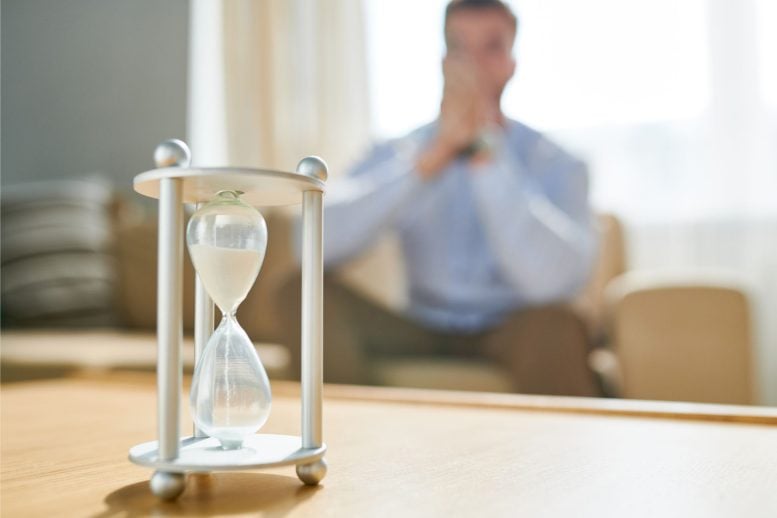Understanding the Dilemma of Waiting: Research Explains Our Impatience

Recent studies have delved into the multifaceted concept of impatience, indicating that the desire for closure significantly shapes both decision-making and the amplification of distress as a waiting period approaches its end. This research provides valuable considerations for enhancing management of waiting experiences.
Back in 1981, Tom Petty famously claimed that waiting was the most difficult aspect of our lives. Recent research from The University of Texas offers explanations for this assertion.
Assistant Marketing Professor of Texas McCombs, Annabelle Roberts, has outlined in two recent research papers the internal chess games we play while feeling impatient, whether we are stuck in a long line or waiting for a crucial announcement.
Roberts investigates how the craving for closure plays a crucial role in fostering impatience in these papers. The first study examines the impact of the need for closure on decision-making — for instance, the decision to perform a task now rather than later. The second study investigates how this affects people's emotions during a waiting period and how these feelings evolve as the end of the wait draws near.
Boasting a Ph.D. in behavioral science, Roberts is interested in analyzing the role of impativeness in shaping human decisions, such as whether to make a future investment or indulge in current expenditure.
Her groundbreaking research offers marketers insights on how to mitigate the irritation ensuing from waiting. According to her, “Everyone resonates with the feeling of frustration when forced to wait”.
In one of her papers, Roberts, along with Alex Imas and Ayelet Fishbach from the University of Chicago, investigates the root of impatience, deducing closure as a significant driver. According to her, the necessity for closure shapes intertemporal choices, which are the comparative values assigned to an immediate reward versus a future payoff.
Through seven online and laboratory studies, participants were asked to choose between working more now or procrastinating to work less later to achieve the same result. Participants displayed a propensity towards paying or working more if it provided faster closure.
Roberts emphasises that the need for goal closure often steers people to prefer working more sooner or paying more immediately. She asserts, “Impatience is not just about wanting the reward as soon as possible. It's also about concluding pending tasks, and not having them lingering over their heads.”
These findings offer managers potential strategies for motivating their teams more efficiently, as people who seek closure are less likely to procrastinate.
Moreover, the study provides valuable insights into why certain marketing strategies like “buy now, pay later” deals sometimes don't succeed. Consumers often want to evade the stress of knowing that they have a future payment due.
Prior studies estimate that Americans spend 37 billion hours annually standing in lines and the average commuter is stuck in traffic for 42 hours per year. Across her second paper, Roberts, along with Fishbach, traced the emotional path during these waiting periods. They discovered that the torment of waiting amplifies as the conclusion draws near.
Roberts explains, “This paper mainly focuses on people's emotions during a waiting period. As the wait approaches its conclusion, people feel increasingly impatient.”
Participants in real-life scenarios rated their feeling of impatience while waiting for the first COVID-19 vaccine or for their bus to reach downtown Chicago. As the end of the wait approached, their frustration amplified. The distress multiplied when they were nearly receiving the vaccine or when the bus was almost reaching its destination.
Impatience levels amongst a group of respondents waiting for the result of the 2020 presidential election were also tracked. Both supporters of Joe Biden and Donald Trump displayed an increase in impatience on Election Day. The impatience continued to surge on the following day when the votes were still being counted. Despite Biden taking the lead, impatience continued to grow for both sides.
Roberts observantly notes, “Even those who didn't expect their candidate to win, simply wanted to get it over with. This strongly illustrates the need for closure and how it plays out during the experience of waiting.”
To companies, Roberts suggests managing the uncertainty around delivery timings by preparing customers for a longer wait than a shorter one to avoid instigating impatience.
She also recommends companies to inform customers about any delay early during their waiting time. This way, customers can recalibrate their expectations accordingly.
In an ensuing project, Roberts is probing into effective interventions to make people feel more patient while waiting.
She says, “I aspire for my research to aid people in handling their waiting experiences better. Many people need assistance in being more patient during waiting periods, and in making better choices like saving for future.”




